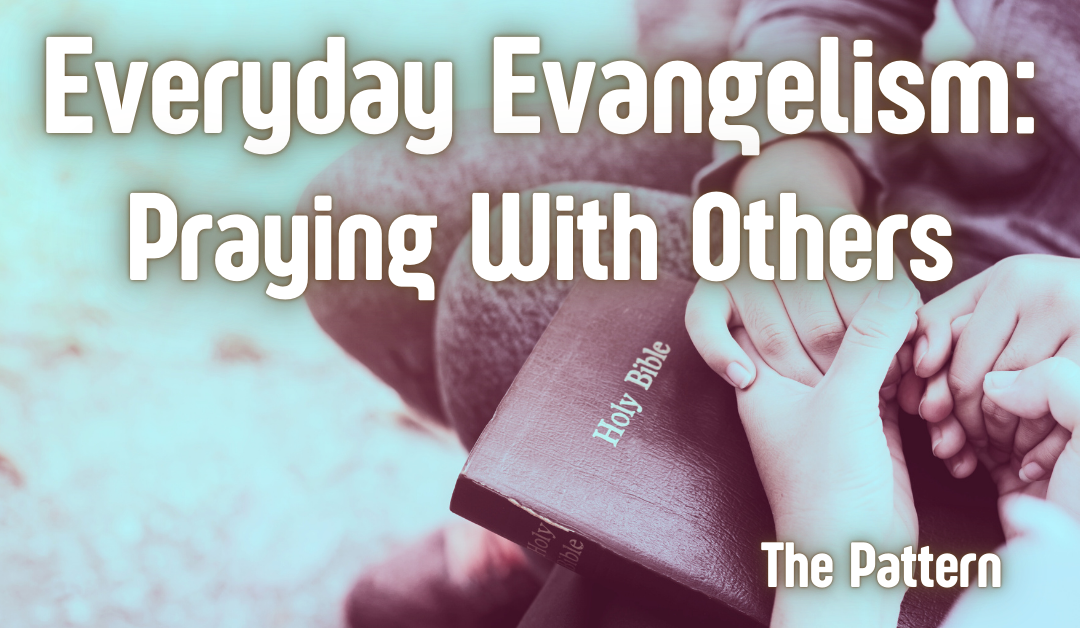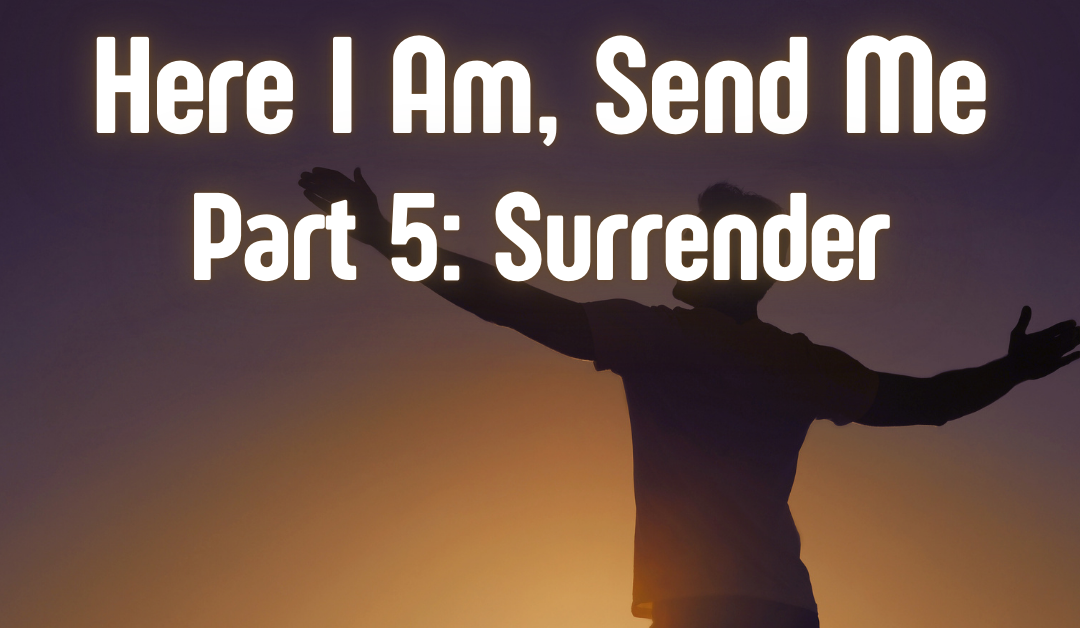Exodus 27:20-21: 20 “Command the Israelites to bring you clear oil of pressed olives for the light so that the lamps may be kept burning. 21 In the tent of meeting, outside the curtain that shields the ark of the covenant law, Aaron and his sons are to keep the lamps burning before the Lord from evening till morning. This is to be a lasting ordinance among the Israelites for the generations to come.
In the book of Exodus God commands the people to bring, as an offering, the purest, highest grade of olive oil for the lampstand and for the anointing oil.
These lamps were kept burning, continually, for generations and generations – even up until the destruction of the temple in 70 AD. The rabbi’s of old offer this insight: that the menorah was kept burning, day and night, night and day. Even though the lamp had to be refilled and the wicks trimmed and replaced, there was always at least one light kept burning.
The oil that was used, called pressed oil here, is in referred to in the King James as ‘beaten oil’.
The Hebrew word here is ‘Katith’ which translates as ‘torn apart’.
The Israelites used the first fruits of the olive – the first oil, the most precious oil – as fuel for the lamp. Only the highest quality would do. According to the Encyclopedia Judaica the olives were beaten down from the trees with sticks, and after the best of the crop had been selected, they were crushed, by hand with mortar and pestle. ‘Broken or torn apart’ – the mush from this process would be placed in wicker baskets – sort of like a strainer or a sieve – from which the precious drops of oil would run out and be collected for use in the temple.
The rest of the olive would then be mushed even more, heated, and more oil extracted for use in cooking and as fuel.
But only the first fruit of the olive would be used for the lamps in the tabernacle.
This was a time consuming and labour intensive process – and they had to continually make this effort to make sure that the lamps would be kept burning.
Just like that olive, we have been squeezed, broken – even torn apart by life – by situations and circumstances – and it is from this place, this morning, that I bring this message.
I would like to share, with you today, some of the oil produced by my own pressing, the oil produced by my own brokenness. A friend of mine likes to say that there is oil in preaching from experience.
I want to share this oil with you this morning in the hopes that it will fan into flames the thing that God wants to do in your life this morning.
I started out my ministry journey in this church. Many of you remember me as a teenager, and later as a Bible College student. And it took me years to come to a point where I can finally admit that when I was here before, all the times that I was here before, I was too young for the call of God on my life. Immature and impressionable.
After I entered the secular workforce, getting my first real job in sales, I fell in with some negative influences. I was, at the time no longer with this congregation, but had moved on to a different church where I was the worship leader, and involved in many different kinds of part-time ministry – but I was leading a double life.
I had, through some very bad decisions on my part and very poor judgement, become addicted to drugs and alcohol. I was still a Christian, I was still faithful in my church attendance and even in ministry – but behind closed doors I was a desperate, miserable wretch of a man who could not go one day without a hit, fix or a drink.
It came to a point, in August 2015, where I was arrested and ended up sleeping in the cells at the Sophiatown Police Station.
I had my day in court, and by some miracle, where I was supposed to go to Sun City Prison for 6 months, through the intercession of my mother, and the guidance of our pastor, Leon – I was let go on the condition that I would go and see a counsellor, get help and get my life together.
Shame drove me to take a break from church altogether. For the first time in years, I stopped going to church and attended 12 Step Meetings instead.
It was when I was almost 1 year clean and sober that I was arrested for the second time – this time, not by the police, but by the love and grace of God.
I met a pastor at one of these meetings. I had mentioned that I had been involved in ministry before – that I had completed my studies years earlier, that I had done work with the homeless, with the youth and that I was a worship leader. He invited me to his church, and I went the next Sunday. And just like that I was at home, once more in my Father’s house.
I soon became their worship and youth pastor. And from there I have not looked back – even in trials and tribulation – in good times and in bad times – I’ve held fast to the God of my Salvation and I have walked with Him, and He has walked with me – for more or less 8 years now – at least 5 of which I have been in full time ministry.
A while ago I started writing a series called ‘Walking With Jesus’ – and I publish it weekly on my website. In it we look at who Jesus is and what He came to do.
And the one thing that is absolutely clear in the book of Mark is that Jesus was a man of Action – Jesus was the right hand of God stretched out – God taking action.
God wants to liberate His people. He wants to set us free from the chains, He wants to call out the captives, and He wants to breathe new life into dry, dead bones.
He wants to turn our graves into gardens, He wants to turn bones into armies – so that we may take back this land for His Kingdom, that we might go into this world and show them that the Mighty One Who Saves is in our midst.
At one point in my life I was getting so many calls and messages from still-suffering drug addicts, that the Lord took me out of a corporate environment and pulled me into full-time ministry. If I had to share even some of the testimonies from the last 5 and a half years, we would be here all day – I have seen people healed, set free and transformed by the Gospel.
I have seen chains broken, prison doors opened – I have seen blind eyes and deaf ears see and hear again! I have seen ligaments and bone grow back!
Let’s take a moment and dive into scripture. Mark 16:1-8:
When the Sabbath was over, Mary Magdalene, Mary the mother of James, and Salome bought spices so that they might go to anoint Jesus’ body. 2 Very early on the first day of the week, just after sunrise, they were on their way to the tomb 3 and they asked each other, “Who will roll the stone away from the entrance of the tomb?”
4 But when they looked up, they saw that the stone, which was very large, had been rolled away. 5 As they entered the tomb, they saw a young man dressed in a white robe sitting on the right side, and they were alarmed.
6 “Don’t be alarmed,” he said. “You are looking for Jesus the Nazarene, who was crucified. He has risen! He is not here. See the place where they laid him. 7 But go, tell his disciples and Peter, ‘He is going ahead of you into Galilee. There you will see him, just as he told you.’”
8 Trembling and bewildered, the women went out and fled from the tomb. They said nothing to anyone, because they were afraid.
The Bible tells us that these three women went to the tomb of Jesus, expecting to find a body.
The Bible tells us in the Gospels, that when the disciples heard that the tomb was empty, they were surprised.
Why were they surprised? Did Jesus not tell them that this was going to happen? That there was going to be a resurrection?
The tomb is empty!
The Biblical account of the resurrection shows us that Jesus had to appear to His disciples before they truly understood what was happening – even the disciples had to see it to believe it.
Why? Is it perhaps because the idea of resurrection, of revival – the idea of coming back to life seems so impossible?
And perhaps today, this is where we find ourselves. Waiting to see so that we may believe.
I am here this morning to show you the resurrection power of our God in Jesus Christ. I was dead, but I am now alive through the grace and mercy of Jesus!
I should have been in a hole in the ground, but I stand before you alive, healed, restored and redeemed!
And I have seen many others called out of their graves as well.
The empty tomb is full – full of hope, full of grace and mercy, full of redeeming love!
The psalmist says, ‘let God arise, His enemies be scattered!’
The empty tomb is a wake up call! God has risen – He has scattered the enemies of sin, shame, fear and even death! The stone has been rolled away and God is on the loose in our midst, the Mighty One who Saves, our saviour, our redeemer, the lover of our souls!
Paul writes to the church in Corinth, in 1 Corinthians 15:56-58:
56 The sting of death is sin, and the power of sin is the law. 57 But thanks be to God! He gives us the victory through our Lord Jesus Christ. 58 Therefore, my dear brothers and sisters, stand firm. Let nothing move you. Always give yourselves fully to the work of the Lord, because you know that your labor in the Lord is not in vain.
He writes to the Ephesians in Ephesians 5:14:
“Wake up, sleeper, rise from the dead, and Christ will shine on you.”
The empty tomb is an invitation – it invites us to get up out of the mirey clay of our unbelief, our circumstances, our situations – the empty tomb is an invitation, calling DEAD MEN COME OUT OF YOUR GRAVES! LAZARUS COME OUT!
Rise from the dead! Let Christ shine upon you!
The empty tomb is an invitation to step out of our graves and into the resurrection power of Jesus Christ.
Some of us this morning are barren ground full of dry bones – we want to believe, we want to be set free, but we just don’t seem to get there – God is saying, today is your day! Step out! Come out of your grave! Step into Me!
Over the years I have spoken to many pastors, apostles, prophets – mighty men of God, who still struggle with the bondage of sin and shame. Some of them renowned and well known – addicted to drugs, gambling, alcohol, sex…
Some of us this morning, believe in Jesus – we come to church, like I once did, but we have one foot in the grave. God is saying step out – let go of your chains! Come alive!
Some of us are alive – we live a good life, we are devout Christians – but it feels like something is missing. Why? Because we are alive, but we are sitting in that empty tomb, not having realized that the stone has been rolled away! Step out! Out of that grave, and into the resurrection power of Jesus! Into the victory of Jesus!
Victory over sin, shame and despair! Victory over poverty, sickness and addiction! Victory is ours today!
Jesus took death itself in His hand and tore it apart. It is under His feet. What then of our situations, our storms, our circumstances? If Jesus defeated death, surely everything else seems small in comparison.
Victory is here today.
Pastor Deon shared a powerful revelation last week when he shared these words from 1 John 4:17: AS HE IS SO AM I!
Jesus got out of that grave. He defeated death!
Jesus took me out of my grave – and not just a spiritual one, He kept me from a very real, very serious and early death. Through His Holy Spirit active and working in my life, through His resurrection power!
I am here to plead with you this morning – step out of your grave! Step out of your grave!
Even Peter went to the empty tomb, and the Bible says he wondered about what might have happened. The resurrection might seem impossible – but with God all things are possible!
You just need to take your mustard seed of faith, hold it tightly in your hand! And step out today!
Turn to Jesus! Let Him do His work within you! Let Him pull you out of darkness and into life! What he has done for others He can do for you!
Step out today!






